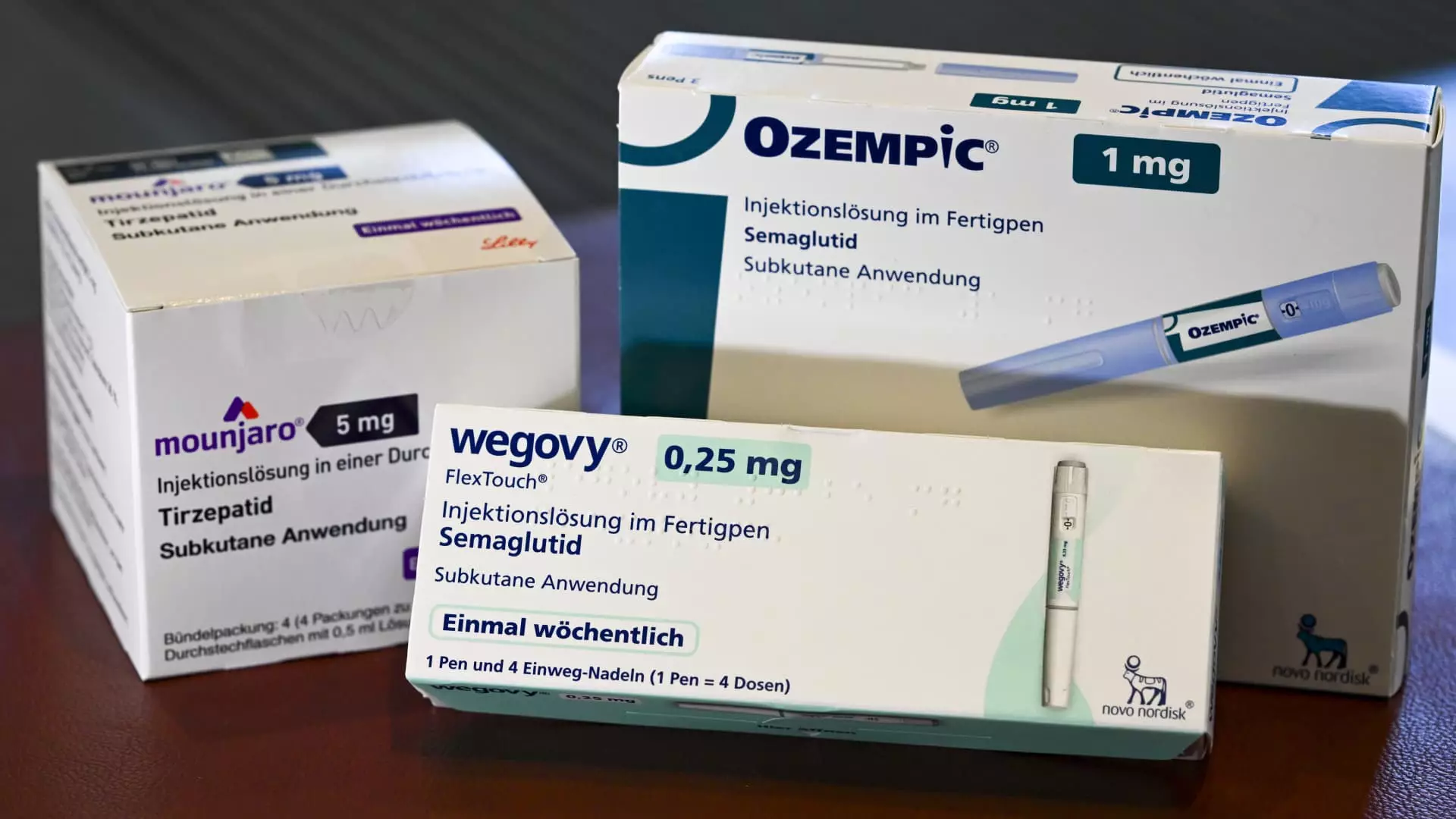In recent years, the health sector has undergone significant transformations, particularly in how employers approach diabetes and weight management. Initially, when Sami Inkinen, the founder and CEO of Virta Health, pitched a digital, nutrition-centered program aimed at promoting weight loss, the response from employers was lukewarm. However, the dynamics have dramatically shifted as necessity drives change. The increasing costs associated with diabetes medications and weight-loss drugs have compelled organizations to explore alternative solutions, including nutritional counseling and coaching. This resurgence in interest underscores a broader acknowledgment of the role lifestyle changes play in health outcomes.
The skyrocketing expenses related to medications such as Novo Nordisk’s Ozempic and Eli Lilly’s Mounjaro have raised alarms among employers. A recent study by the Purchaser Business Group on Health revealed that GLP-1 medications have become a significant factor in driving up employer healthcare costs, with 96% of those surveyed expressing concerns regarding long-term financial burdens. This has led many companies to re-evaluate their healthcare strategies and seek out sustainable and cost-effective alternatives. Employers are increasingly aware of the need for clinical solutions that not only provide immediate relief but also foster long-term health and well-being.
Virta Health distinguishes itself by prioritizing nutritional counseling as a standalone approach to weight loss. Despite the pressures to prescribe popular GLP-1 drugs, Inkinen highlighted that a mere 10% of program participants rely on these medications. Instead, many individuals who engage in Virta’s counseling programs successfully achieve an average weight loss of 13% without depending on pharmaceuticals. The philosophy resonates with those seeking a more holistic approach; as Inkinen noted, most people prefer not to rely on medications indefinitely if presented with effective and sustainable alternatives.
Virta Health’s impressive 60% revenue surge in 2024, totaling over $100 million, signals a major shift in the industry. This influx of demand reflects the evolving attitudes of employers who are recognizing the value of integrating nutritional management programs into their health plans. By focusing on providing long-term solutions rather than short-term fixes, the company has positioned itself as a growing player in a market that is still heavily influenced by pharmaceuticals. Furthermore, indications that Virta Health is on track for profitability demonstrates the potential of preventive healthcare strategies.
Employers now more than ever see the merit in introducing lifestyle management interventions, particularly in conjunction with medication options like GLP-1s. However, as Randa Deaton from Purchaser Business Group on Health pointed out, introducing such programs is fraught with challenges. One key issue is that drug manufacturers and pharmacy benefit managers (PBMs) have begun to tighten their financial incentives when employers require lifestyle modifications as a condition for medication access. This scenario complicates the integration of effective weight management strategies within employer health plans, revealing a tension between promoting health and managing costs.
Virta competes with other firms such as Omada Health, which has also seen a surge in interest for its GLP-1 weight management interventions. Partnering with Cigna’s Evernorth pharmacy benefits division, Omada has quadrupled its enrollment numbers, indicating that the demand for such programs is significantly increasing across the corporate sector. This competitive landscape raises intriguing possibilities for these companies as they contemplate future growth strategies, including potential public offerings.
With market forces pushing health and wellness initiatives to the forefront, speculation is rife whether companies like Virta and Omada will choose to become publicly traded entities in the near future. Both firms, however, seem to prioritize expanding their business models and solidifying their market presence before taking that leap. Inkinen’s experience with prior startups adds a layer of calculated optimism to Virta’s journey, showcasing a clear focus on sustainable growth based on proven successes. As he aptly stated, focusing on what’s working is crucial for scaling effectively.
The landscape of diabetes and weight management is shifting as companies like Virta Health champion a nutritional approach to healthcare. This model focuses not only on immediate health impacts but also emphasizes sustainable lifestyle changes—an essential component overlooked in traditional pharmaceutical treatments. As employers recognize the value in these holistic strategies, the future of healthcare looks promising, with an emphasis on well-being that aligns with both individual and organizational goals.

